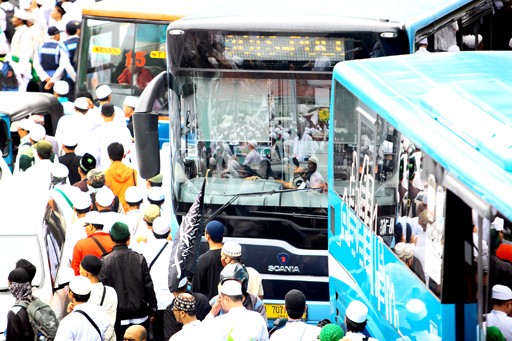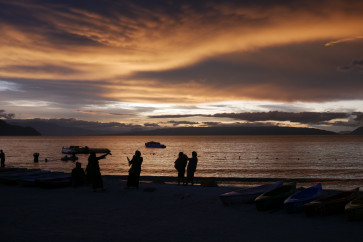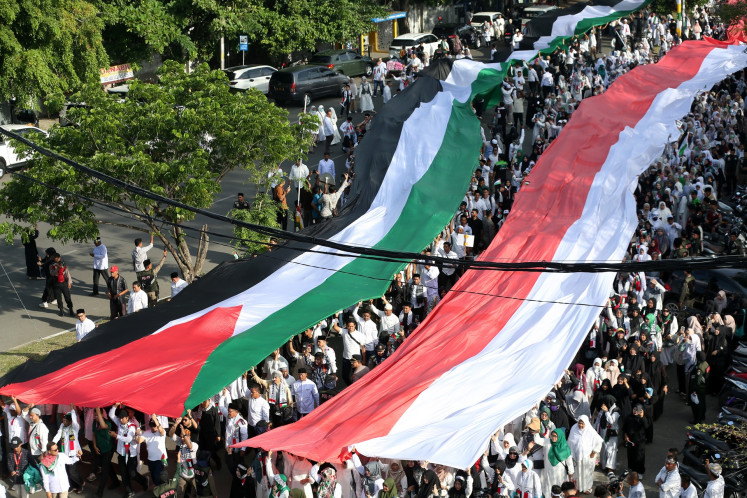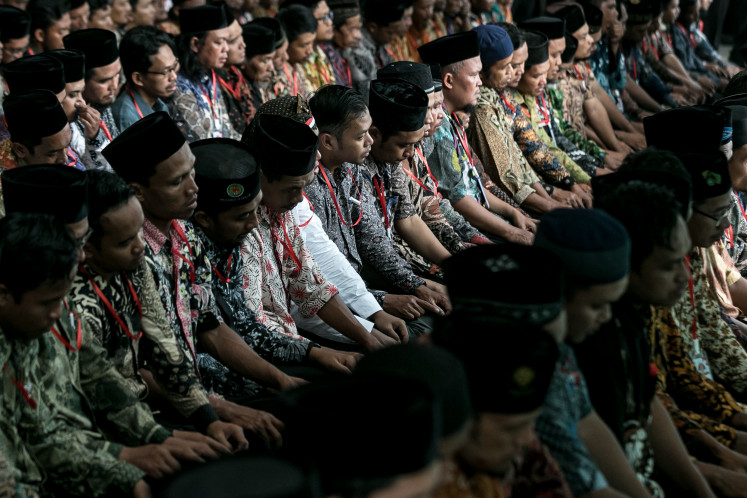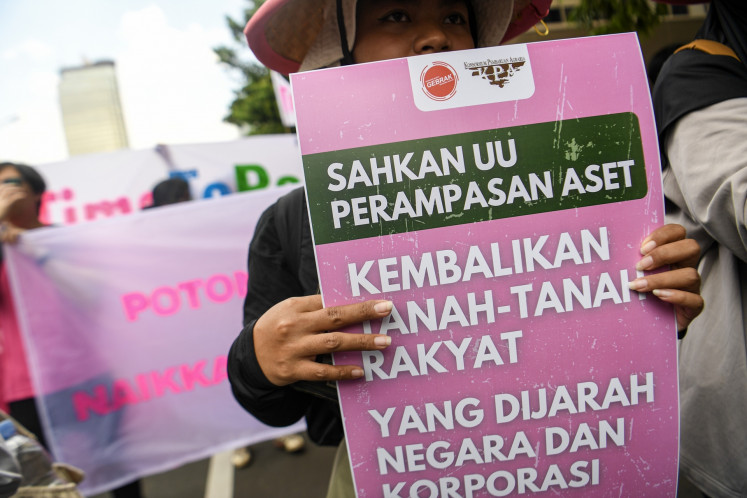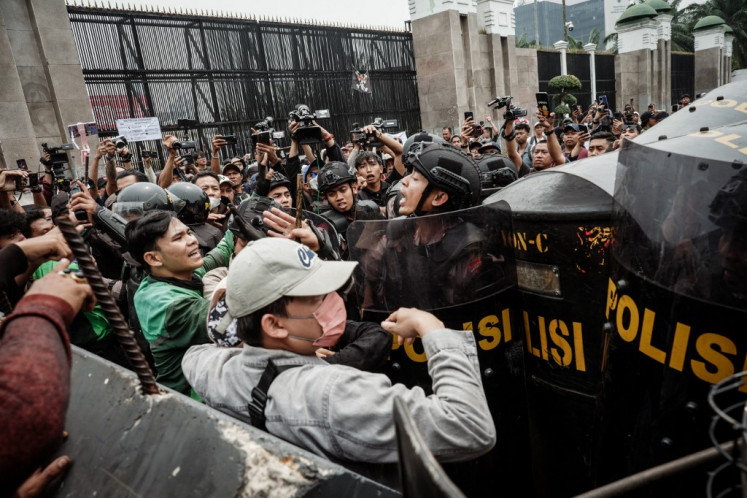Popular Reads
Top Results
Can't find what you're looking for?
View all search resultsPopular Reads
Top Results
Can't find what you're looking for?
View all search resultsPersisting problems from the al-Maidah 51 debate
Change text size
Gift Premium Articles
to Anyone
D
espite the fact that Jakarta Governor Basuki “Ahok” Thahaja Purnama has apologized for statements made regarding the Quranic verse al-Maidah 51, some Islamic groups are saying that an apology is not enough. Protestors demanded that Ahok be criminalized in a rally last week in Jakarta.
Deputy secretary-general of the Indonesian Ulema Council (MUI) said on a TV show that religious defamation must be punished by “death, crucifixion or at least hand amputation and expulsion”. Even though he did not urge the state to adopt such a policy, but rather called on the processing of the case in accordance to the law on religious defamation, his remarks give the impression that Islamic law is that harsh.
The Quranic verses quoted by the MUI deputy secretary-general are known as the hirabah verses. Hirabah, which literally means “warfare”, and the verses were basically applied under the principles of Islamic jurisprudence to crimes such as highway robbery, piracy, unlawful rebellion and sedition. The verses were the same verses used by the Islamic state (IS) group to justify its crucifying of those waging war against IS.
Therefore, the attribution for those punishments for alleged religious defamation is dangerous.
What is more saddening is that Islamic groups are pushing for Ahok to be criminalized when he had no intention of insulting Islam or the Quran. The groups are insisting that the literal out-of-context interpretation of al-Maidah:51 is the only correct one. They take for granted that the verse literally prohibits non-Muslims from being a “leader” in a Muslim country.
The word auliya is not translated as “leader” in most contemporary translations as well as tafsir, the consequence of that translation is dangerous: non-Muslim ministers, regents, even bosses in companies where Muslims work are also leaders, aren’t they? Must they be dismissed from their positions just because of the verse?
This kind of interpretation goes against the principle of equal citizenship.
The verse will only make sense if understood in its context, that is, in a situation of war, such as when the Jews were said to have betrayed the Muslims by violating the social contract made between the two to defend Medina together when the city-state was under attack; hence the later prohibition to make the Jews “allies” (the closest meaning to the word “auliya”).
Muslims seem to be easily offended recently. It is not rare nowadays for Islamic groups to claim religious defamation.
Instead of carrying out introspection or remembering that Muslims must represent Islam by responding to criticism wisely, they get angry and feel justified to use the words “kill” or “expel”, even in regard to “deviant” behavior.
Islamic groups came to the defense of a former minister who quoted a hadith when making a statement that homosexuals must be killed.
They also became angry when The Jakarta Post published a cartoon with the IS flag. Why didn’t those groups get offended when IS used Islamic symbols when beheading innocent people? Doesn’t this fact just confirm Ahok’s statement on religious abuse instead?
The definition of religious defamation is unclear and vague, and as such is prone to being unjustly used to criminalize people who do not deserve it. Further, accusations of blasphemy are often based on emotionally driven.
The result of all of this, besides the abuse of the law, is that people may be afraid to exert their rights to be critical of Muslims who use religion to justify inexcusable actions.
A young intellectual of Nahdlatul Ulama, Akhmad Sahal, explained it well: “As long as an ulema cannot be criticized or criticism against an ulema is seen as anti-Islam, the Muslim people will still be easily manipulated.”
Indonesia is not a country where bloggers have been killed because of their criticisms against Islam and will remain that way so as long as the hard-liners do not occupy the state’s institutions, the voices of religious moderation are amplified and people vote for a candidate not based on his/her race or religion but rather his/her competence and policies.
________________________
The writer is a graduate student at the Center for Religious and Cross-cultural Studies (CRCS) at Gadjah Mada University, Yogyakarta.

